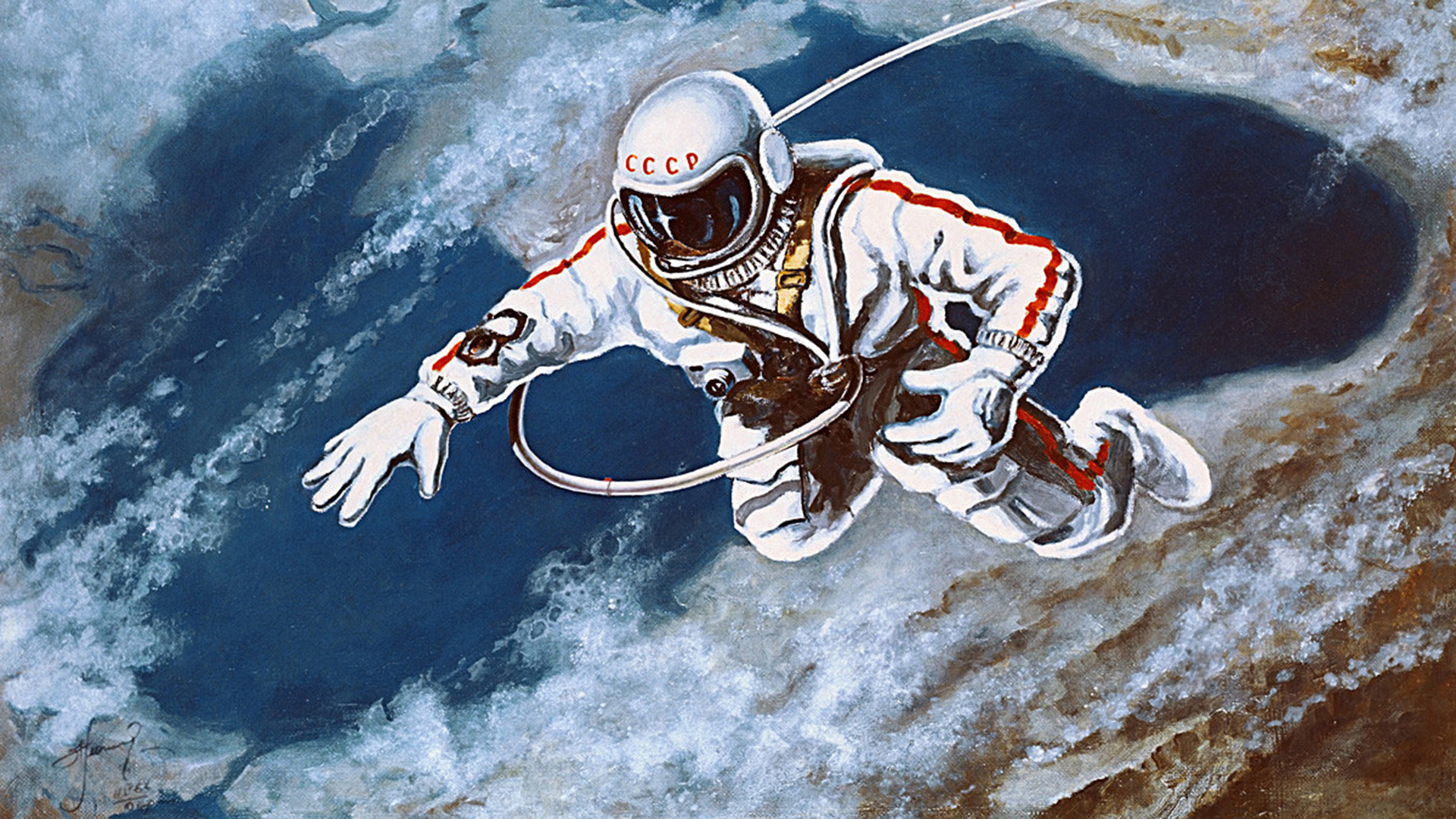
The space theme was literally everywhere in the USSR: paintings, posters, building/subway mosaics, postage stamps. Artists drew inspiration from the image of Gagarin, cosmonauts in space suits, the starry sky and, of course, futuristic rockets. Here are just a handful of their cosmic creations.
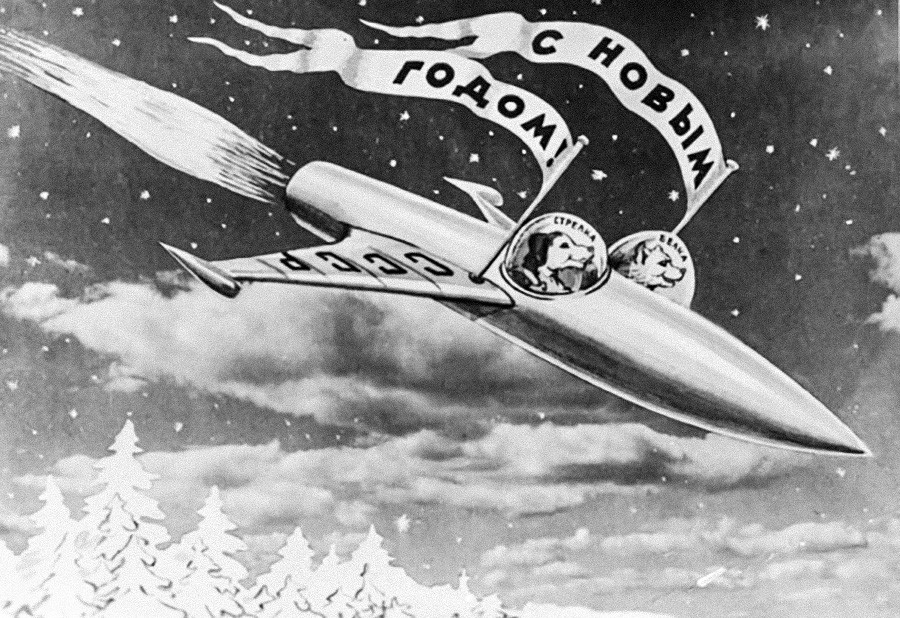
The successful flight and return to Earth of the world’s first cosmohounds, Belka and Strelka, caused a sensation. They became so popular that their images were replicated everywhere from New Year cards (pictured) to matchboxes.
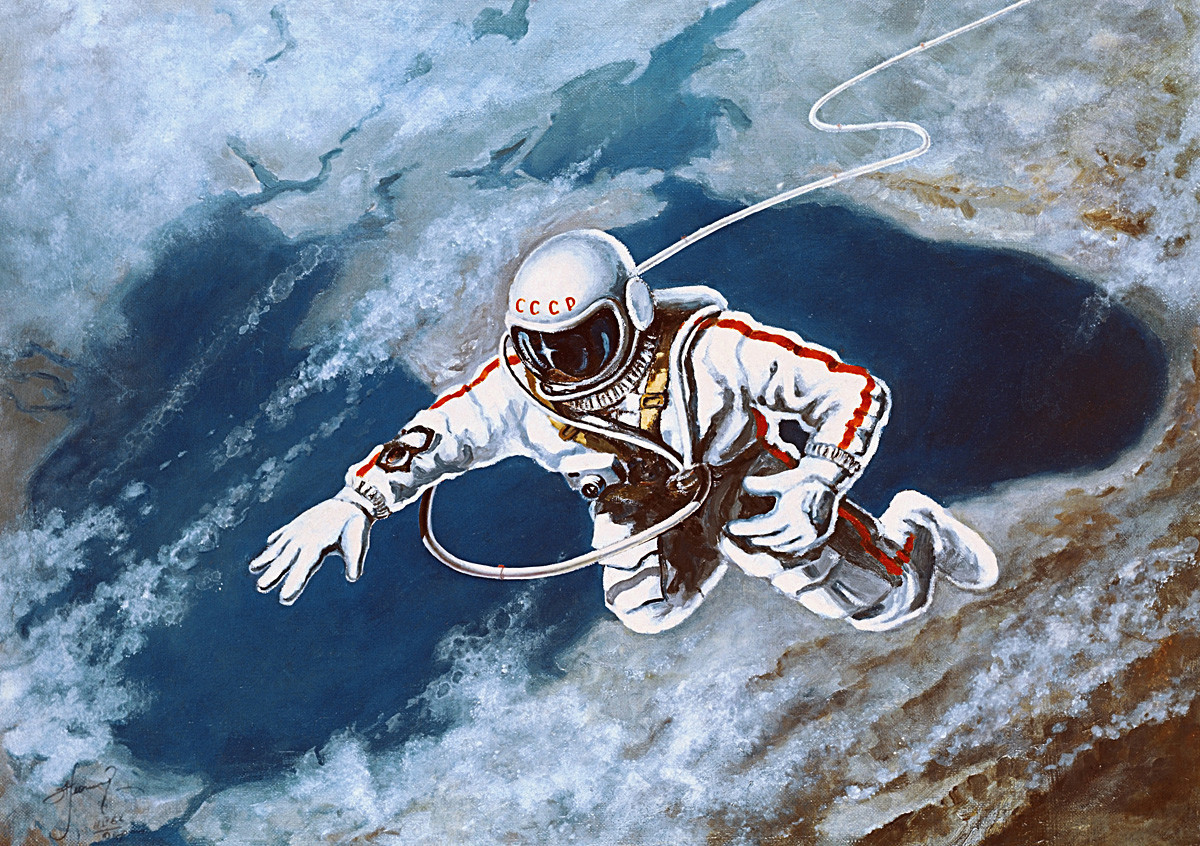
Cosmonaut Alexei Leonov is known primarily as the first person to conduct a spacewalk. But he was also an artist, who depicted his flight in a series of paintings.
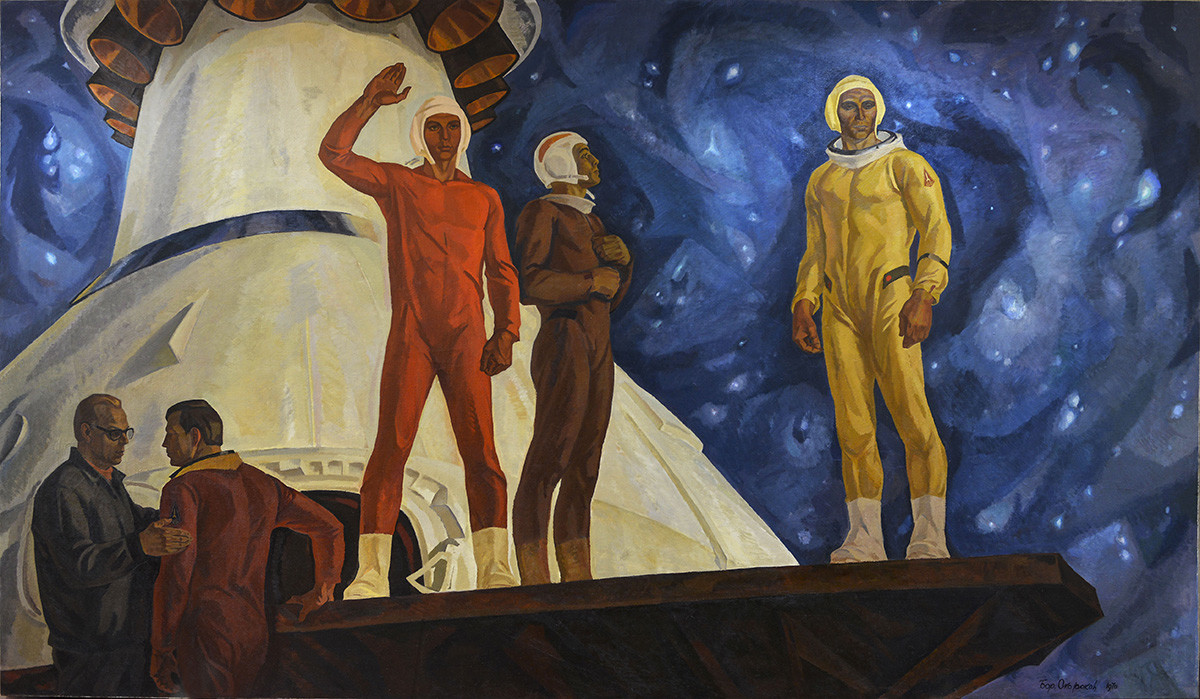
Having been kept for many years in Poland out of public view, this monumental five-meter canvas was recently restored and returned to Russia.
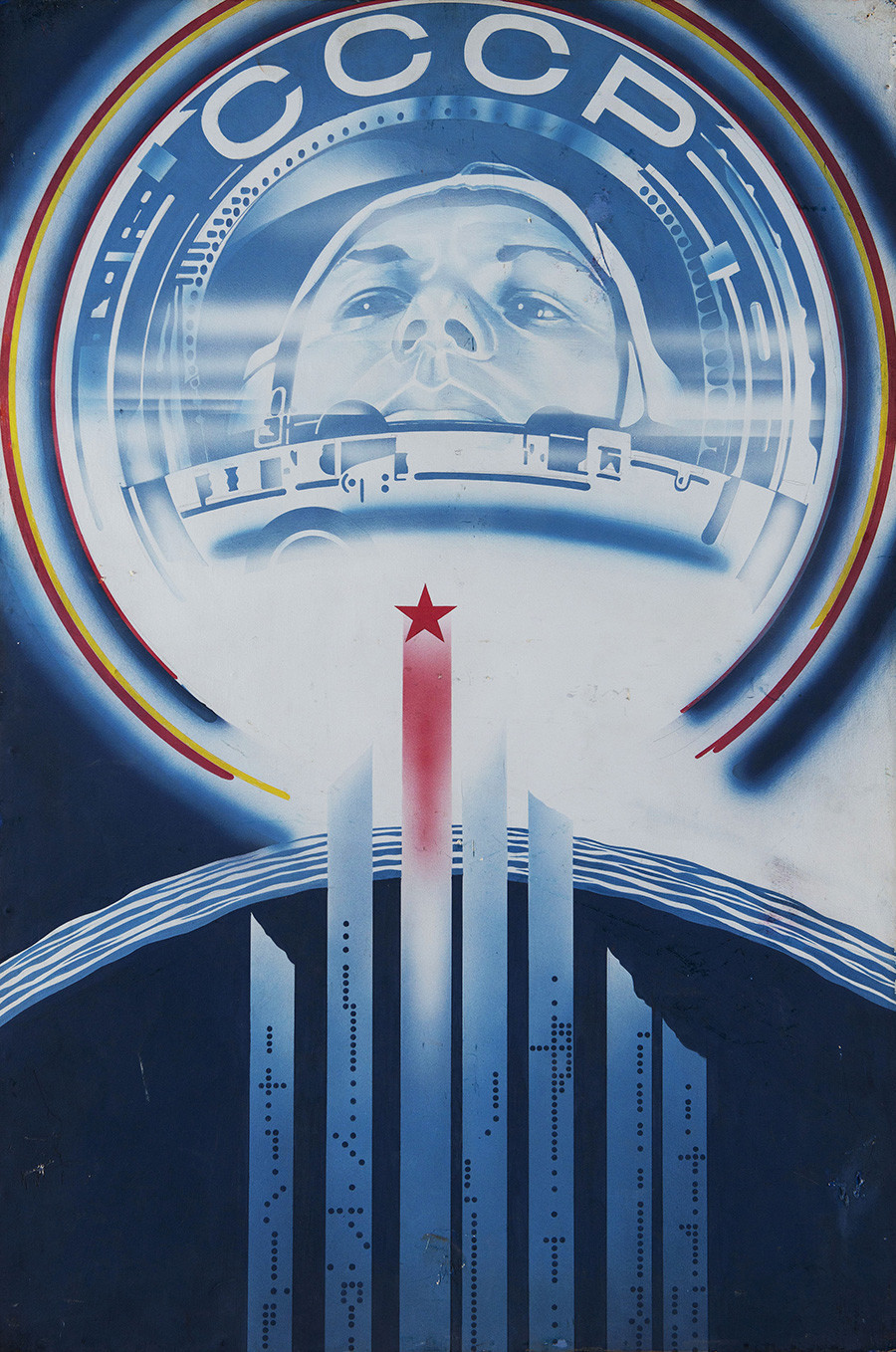
These three artists co-authored many Soviet propaganda posters. They depicted the country’s achievements in the field of cosmonautics in official canvases that inspired national pride.
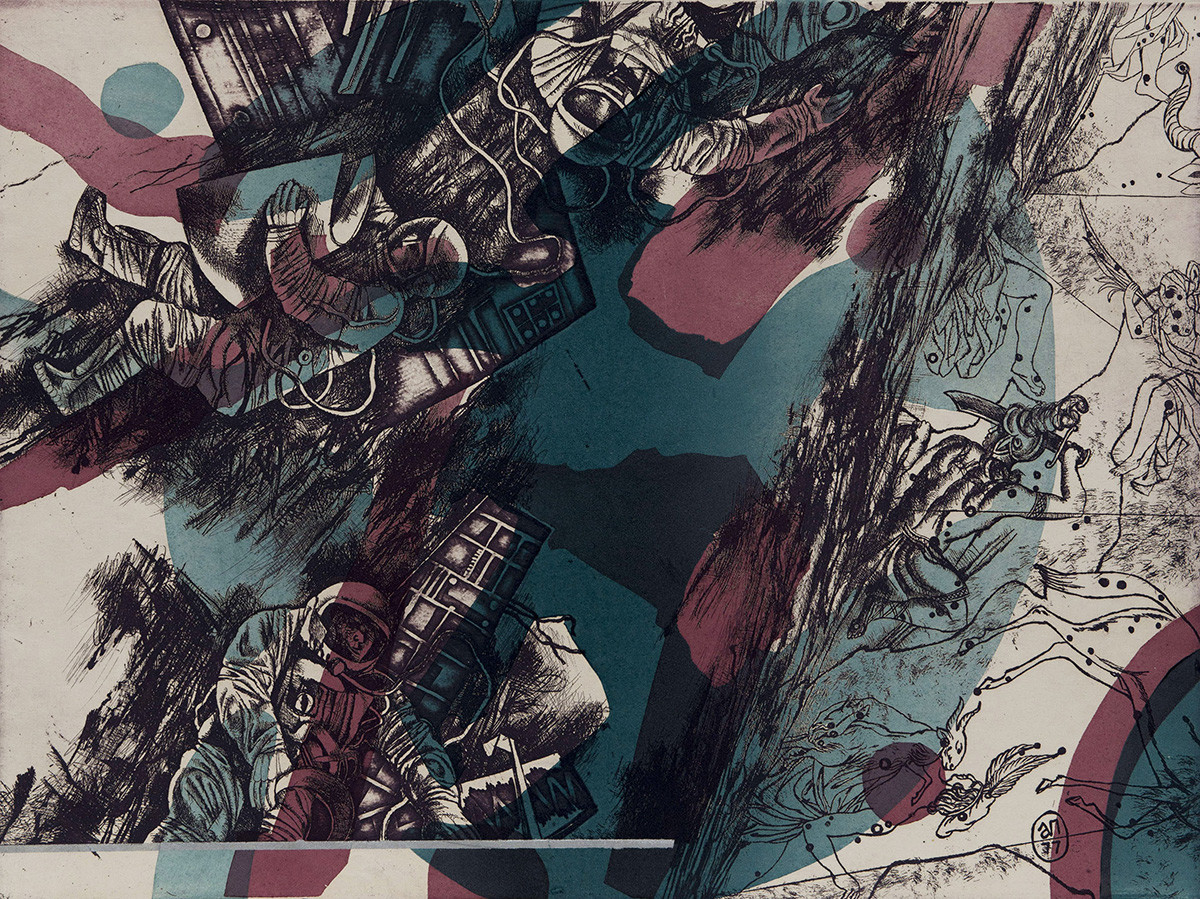
Graphic art master Anatoly Plakhov was fascinated by cosmism, a space-themed philosophical movement that emerged in Russia at the turn of the 19th century. He created several works fancifully combining cosmic imagery with mythical objects and constellations.
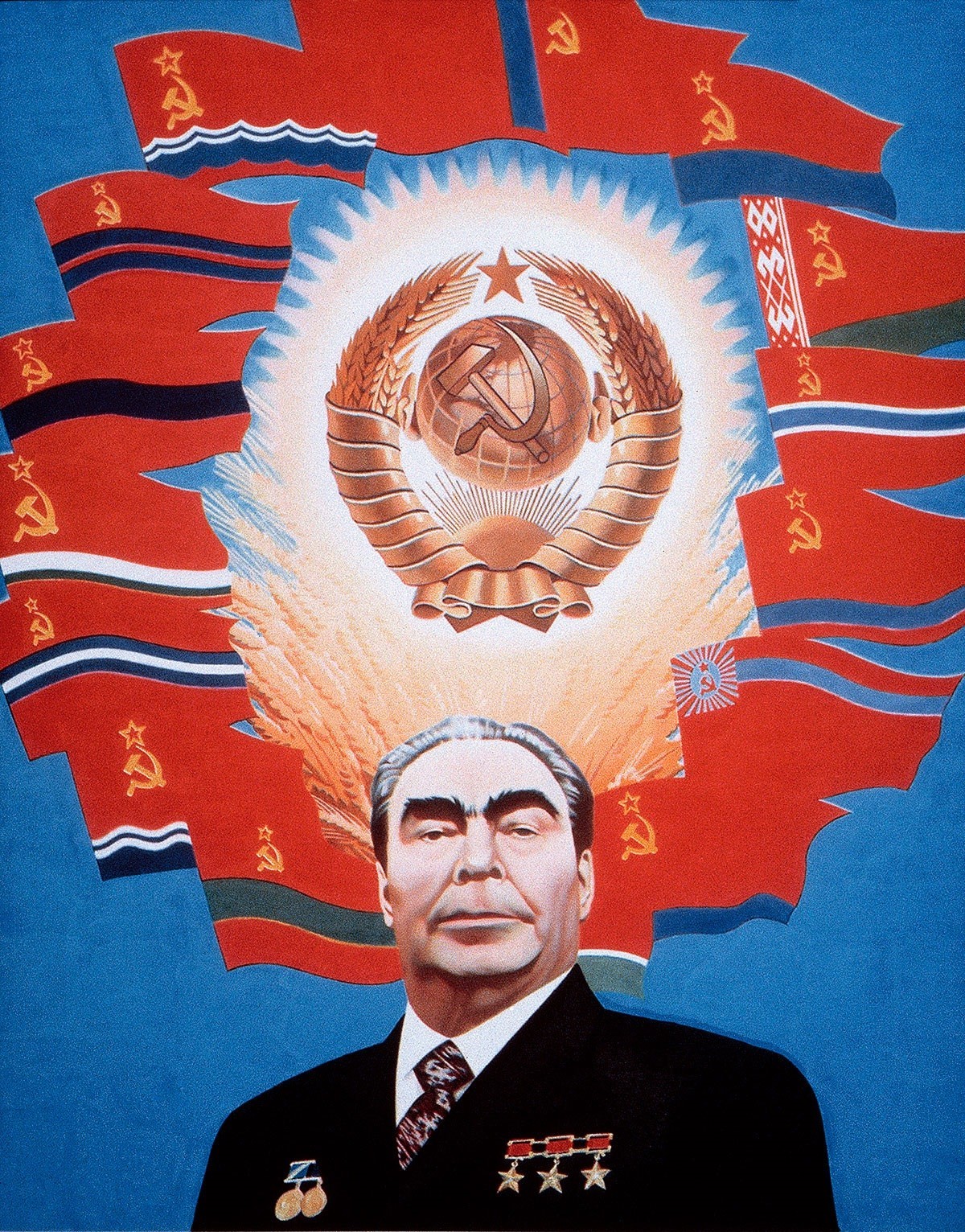
Erik Bulatov’s paintings resemble Soviet propaganda posters. That said, the artist was an exponent of Sots Art, and his hypertrophied depictions of Soviet symbolism are intended to ridicule the “abnormality of that life that our minds perceived as normal.”
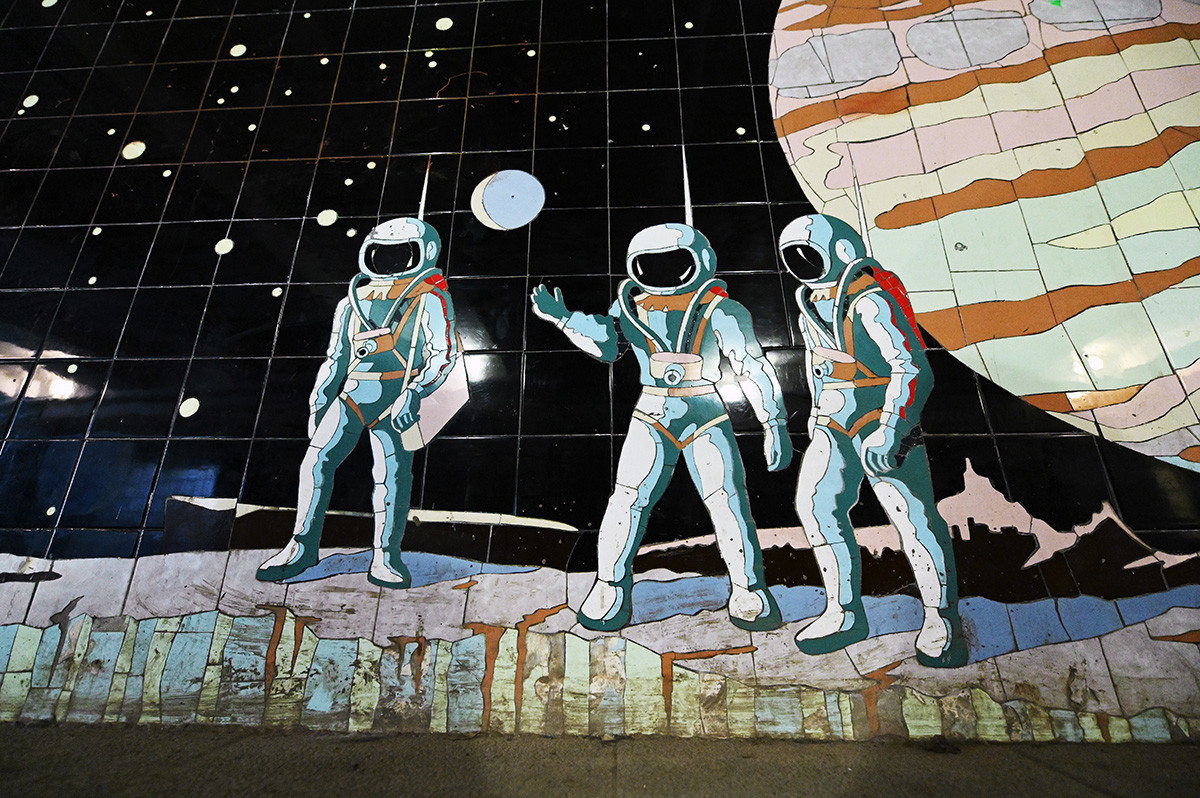
The southern Russian city of Rostov-on-Don is famous for its underpass mosaics. Down there are some real masterpieces, recognized as objects of national cultural significance. One of these underpasses is entirely space-themed.
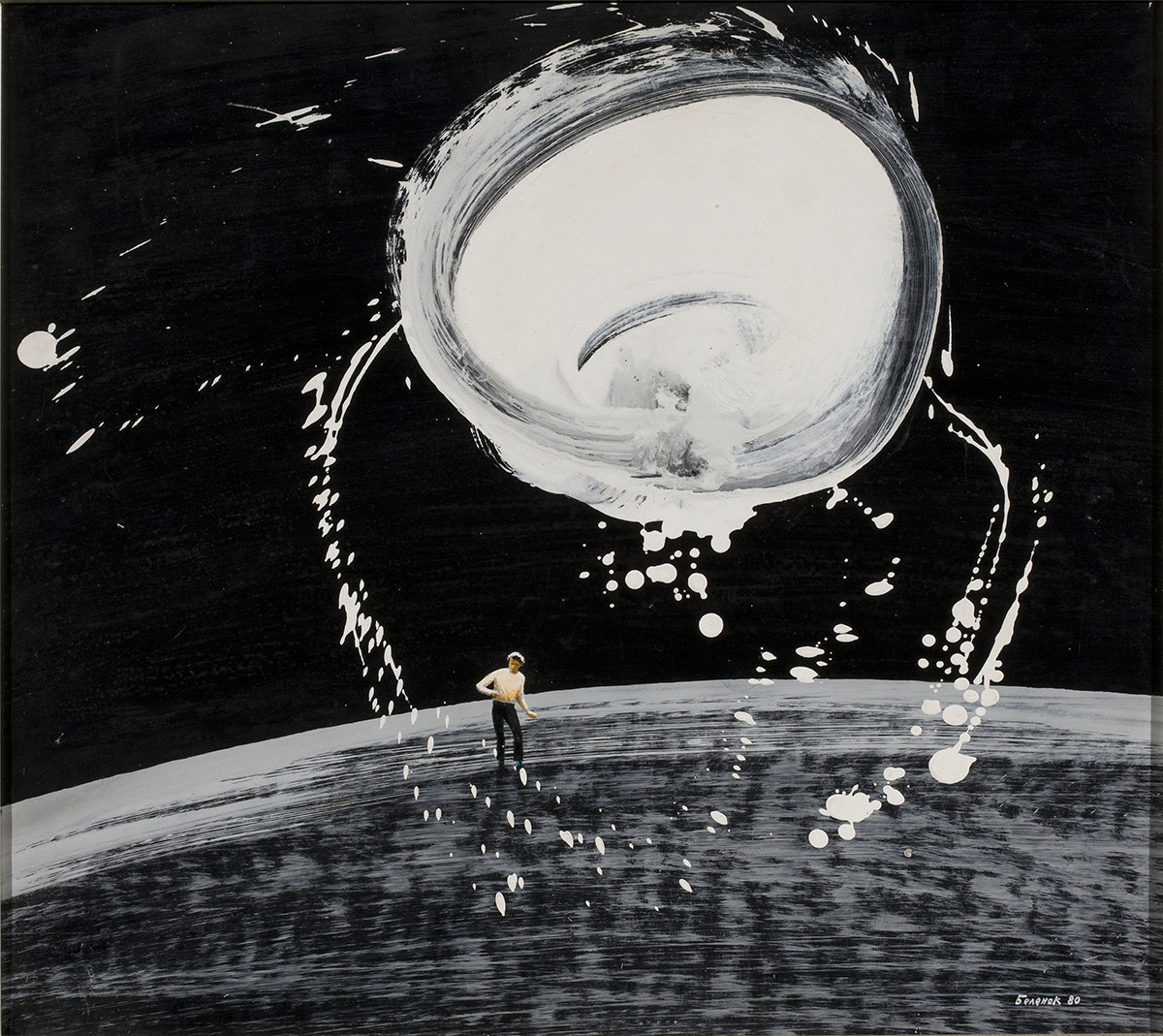
The link between humans and space inspired unofficial artists, too, among them Petr Belenok. Through astronomical objects, he expressed his idea of the structure of the Universe.
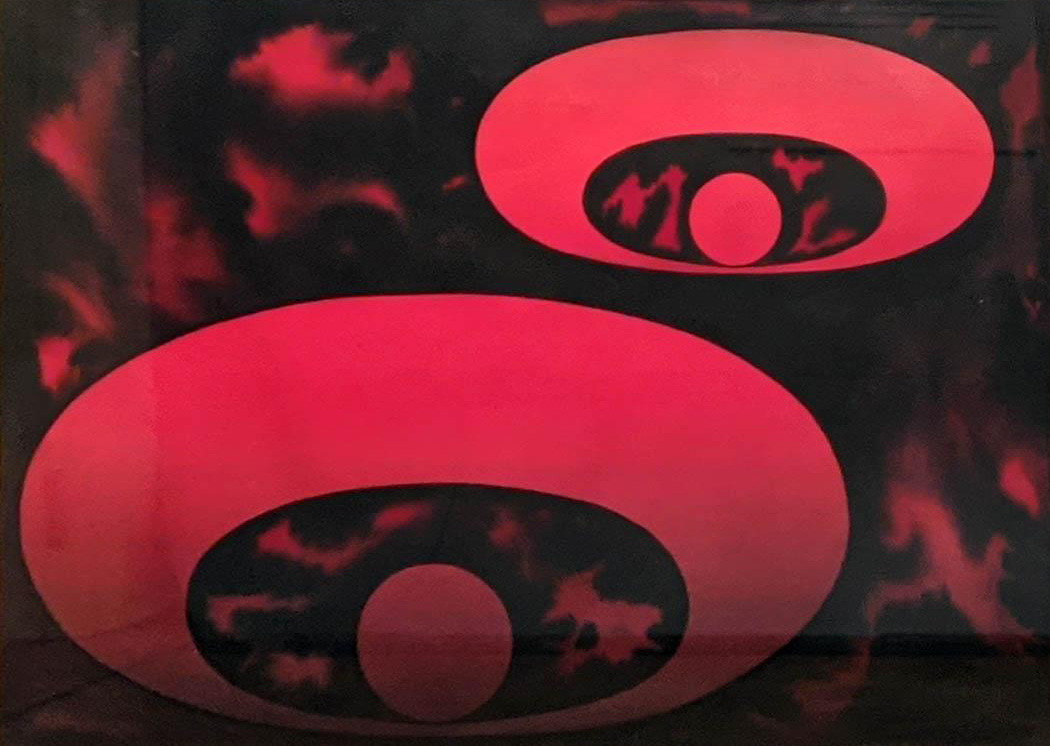
Speculation and legends about cosmic objects and human connection with extraterrestrial civilizations quickly became a fashionable topic. Here’s avant-garde artist Nikolai Vechtomov's depiction of a UFO, the most popular myth in the Soviet world.
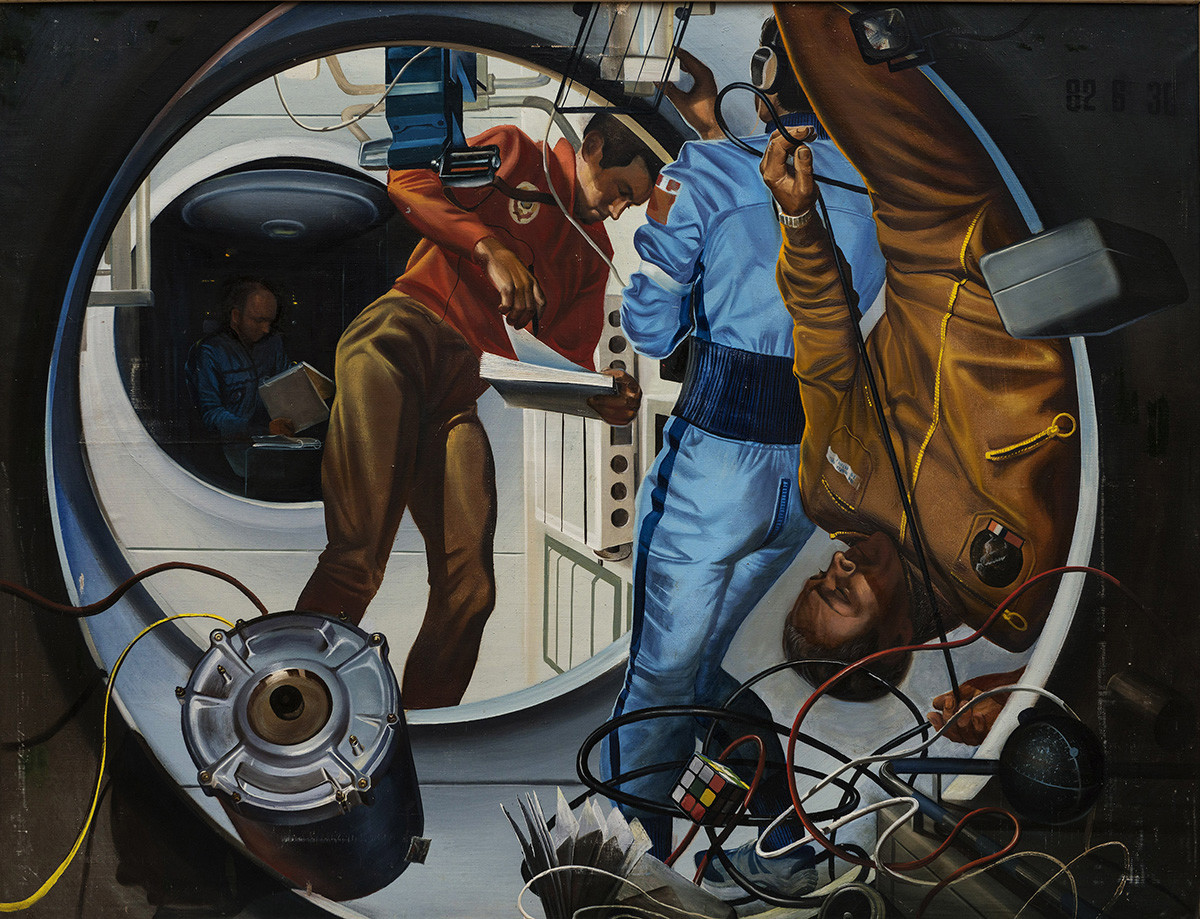
The working life of cosmonauts aboard the Mir ('peace' in Russian) space station was portrayed by artist Mikhail Borisov, who showed that, in addition to being heroes and important scientists, they are also ordinary people just doing their job.
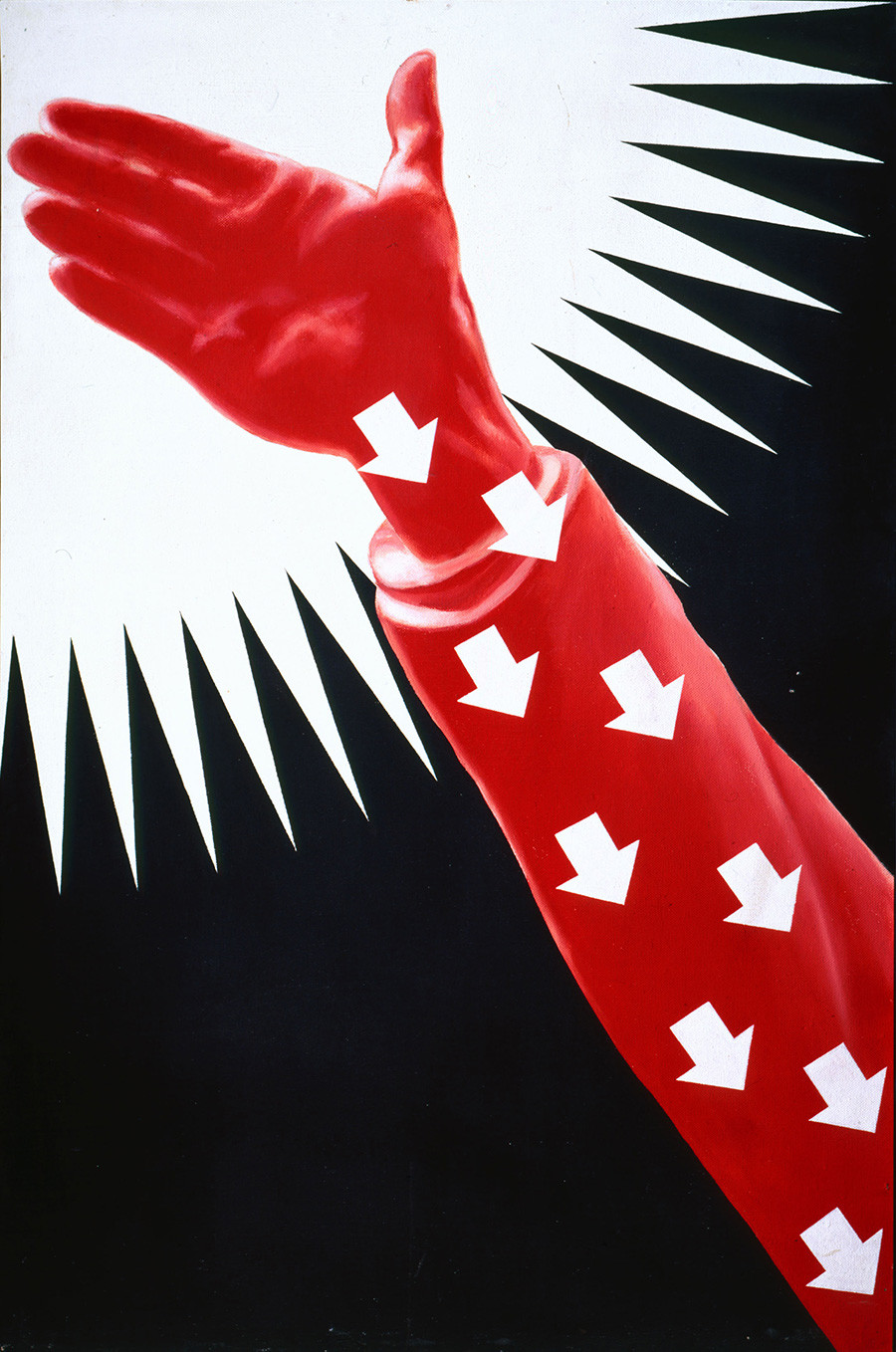
Komar and Melamid, the creators of Sots Art, which poked fun at the official art of Socialist Realism, addressed Soviet realities in a deliberately poster-like manner. It is not hard to see in this outstretched hand the allusion to Soviet leaders Vladimir Lenin and Joseph Stalin, who were hailed as having brought the benighted country into the light.
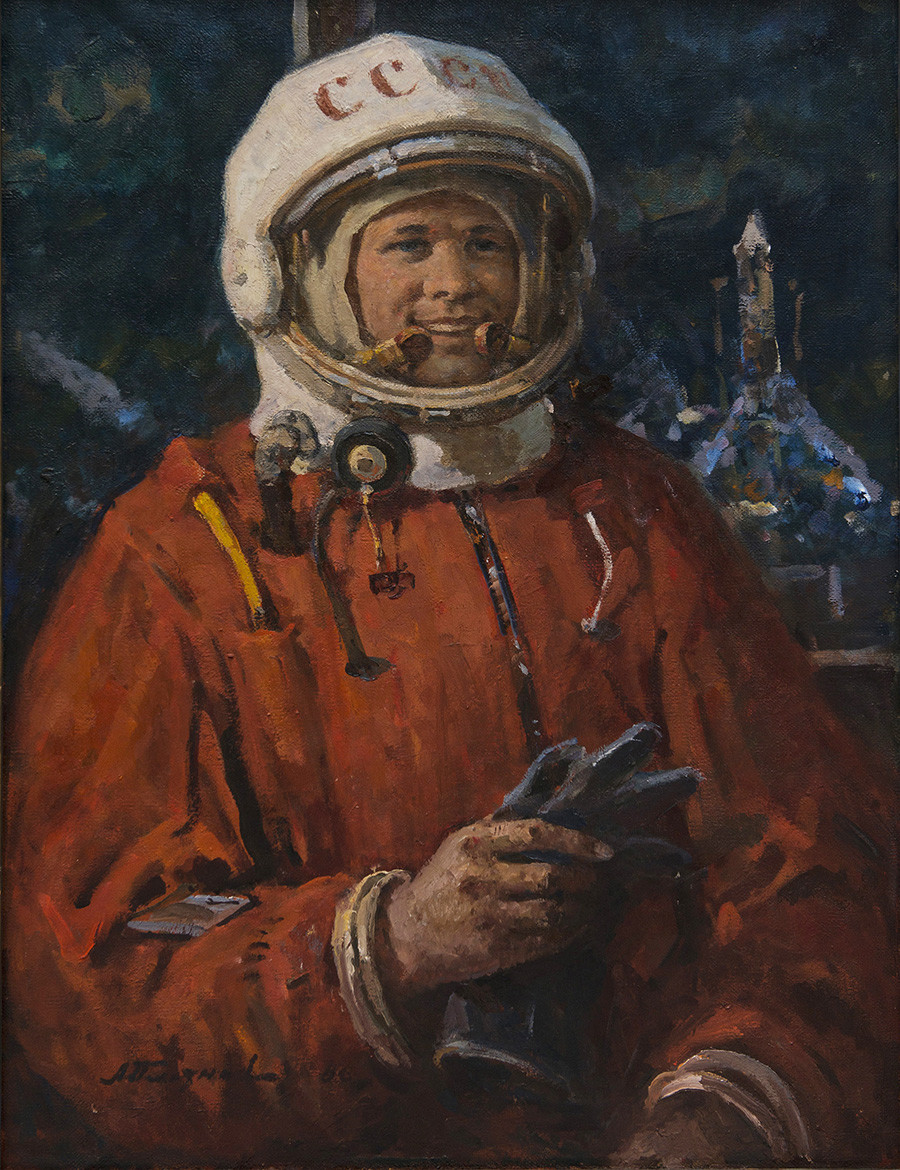
Andrey Plotnov painted one of the best-known portraits of Yuri Gagarin. Incidentally, he was personally acquainted with his subject, which gave his work special resonance.
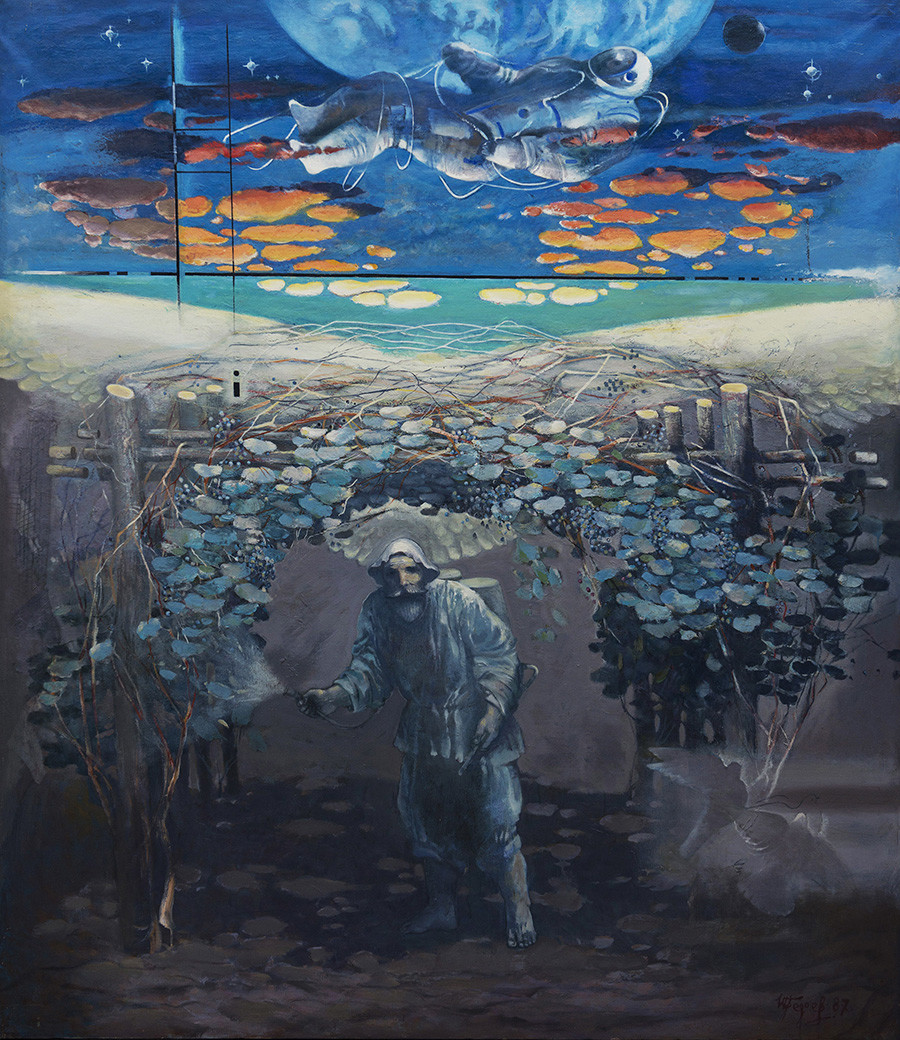
In this diptych, native Ossetian artist Bedoev depicted a mirror image of space and Earth.
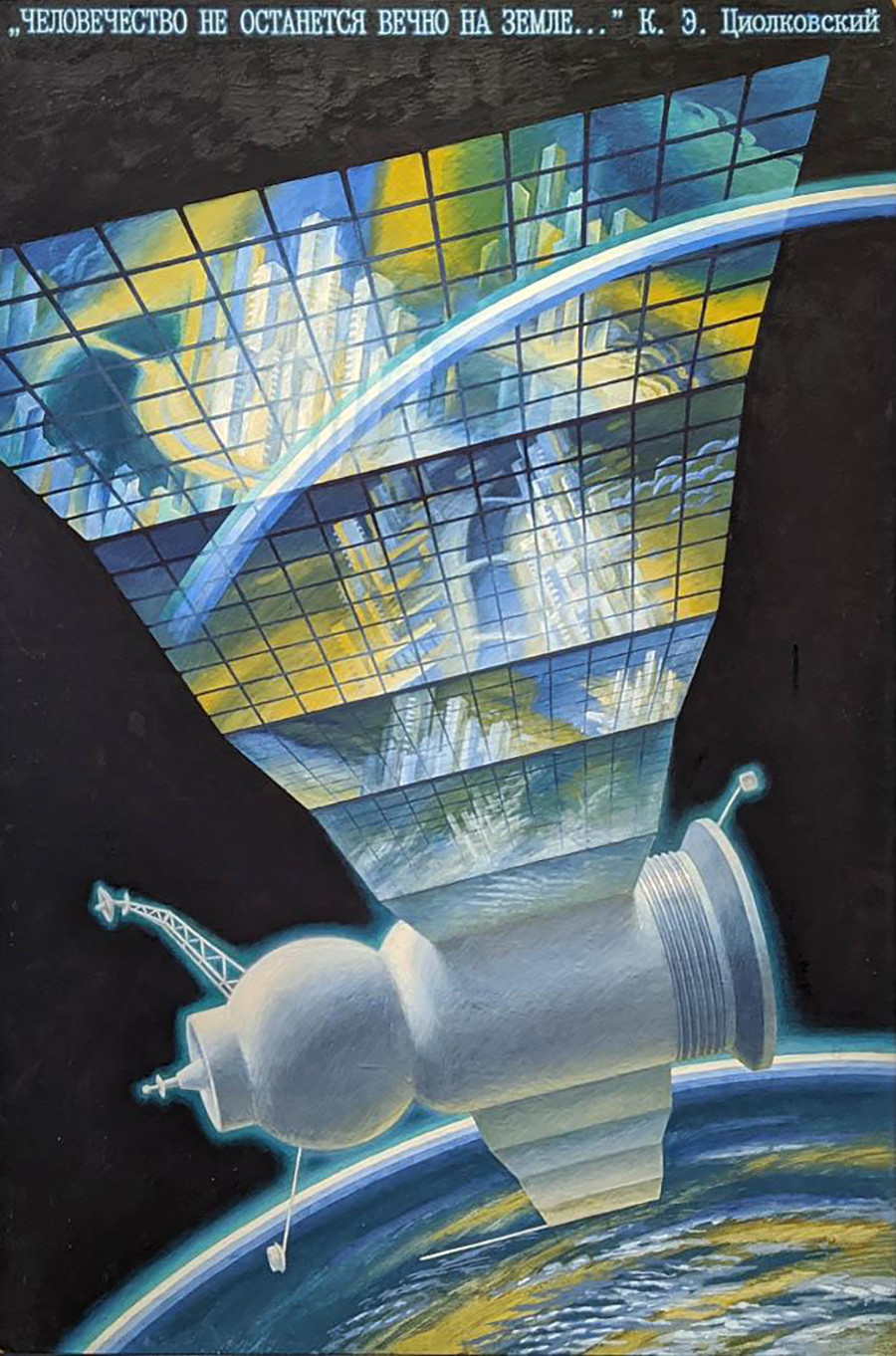
Shurshin fantasized about the exploration of outer space and the colonization of other planets, even signing his work with a quote from the founder of Russian cosmism, Konstantin Tsiolkovsky: “Humanity will not remain forever on Earth.”
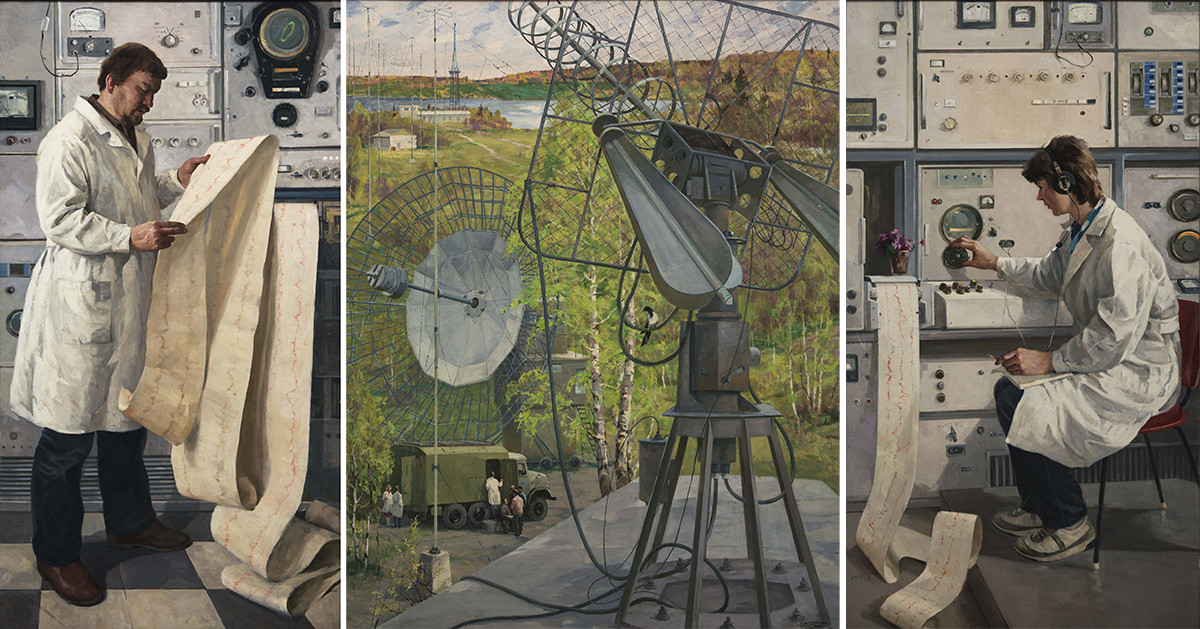
Soviet artist Pyaskovsky paid tribute to space industry workers back on terra firma, who undeservedly remain in the shadows. Not as celebrated as cosmonauts, nevertheless they play an equally important role.
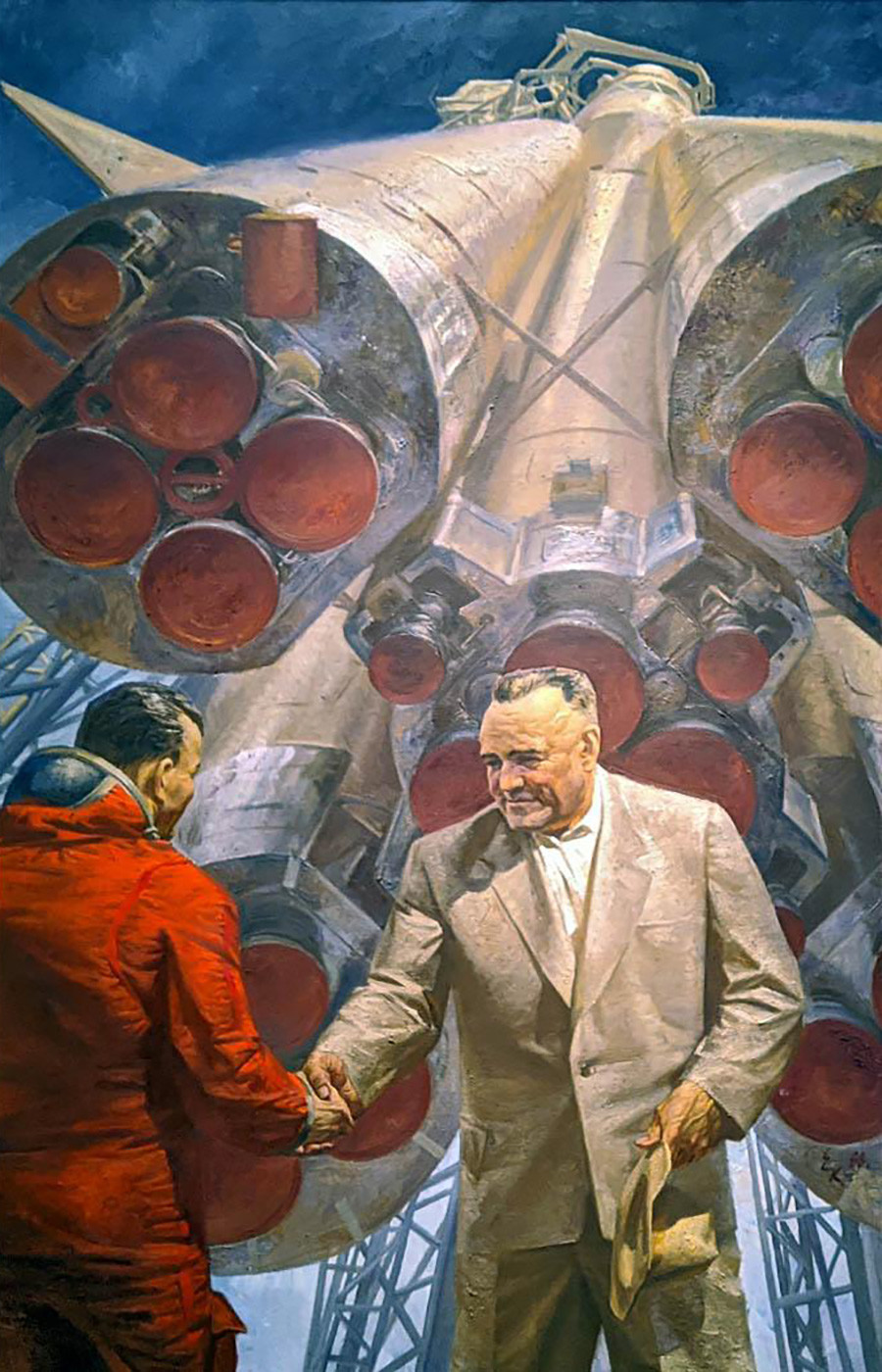
The picture shows the moment before Gagarin’s flight. His final act is to shake the hand of the man who made spaceflight possible, Soviet engineer, true genius, and the father of practical astronautics, Sergey Korolyov.
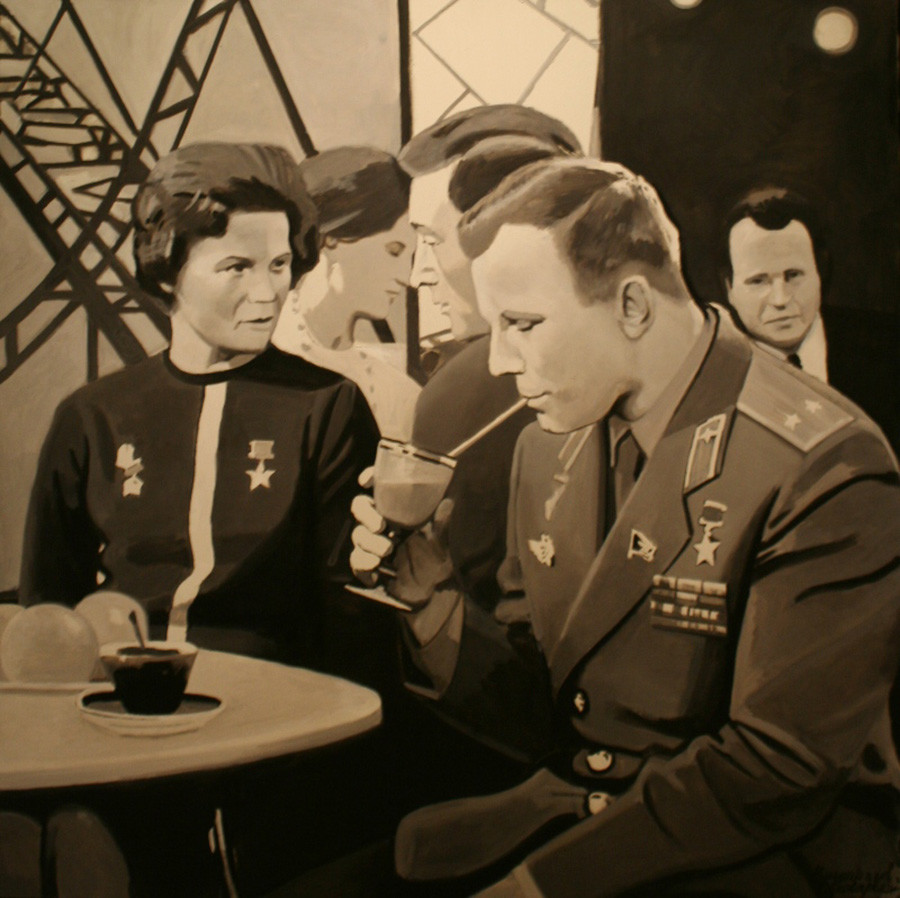
Artists continue to reflect on the space theme to this day. One of the most famous contemporary pop-art duos, Vinogradov and Dubossarsky, here play with a real photo: Gagarin drinking a cocktail on a New Year’s TV show. A reminder that the hero cosmonaut is still a regular guy.
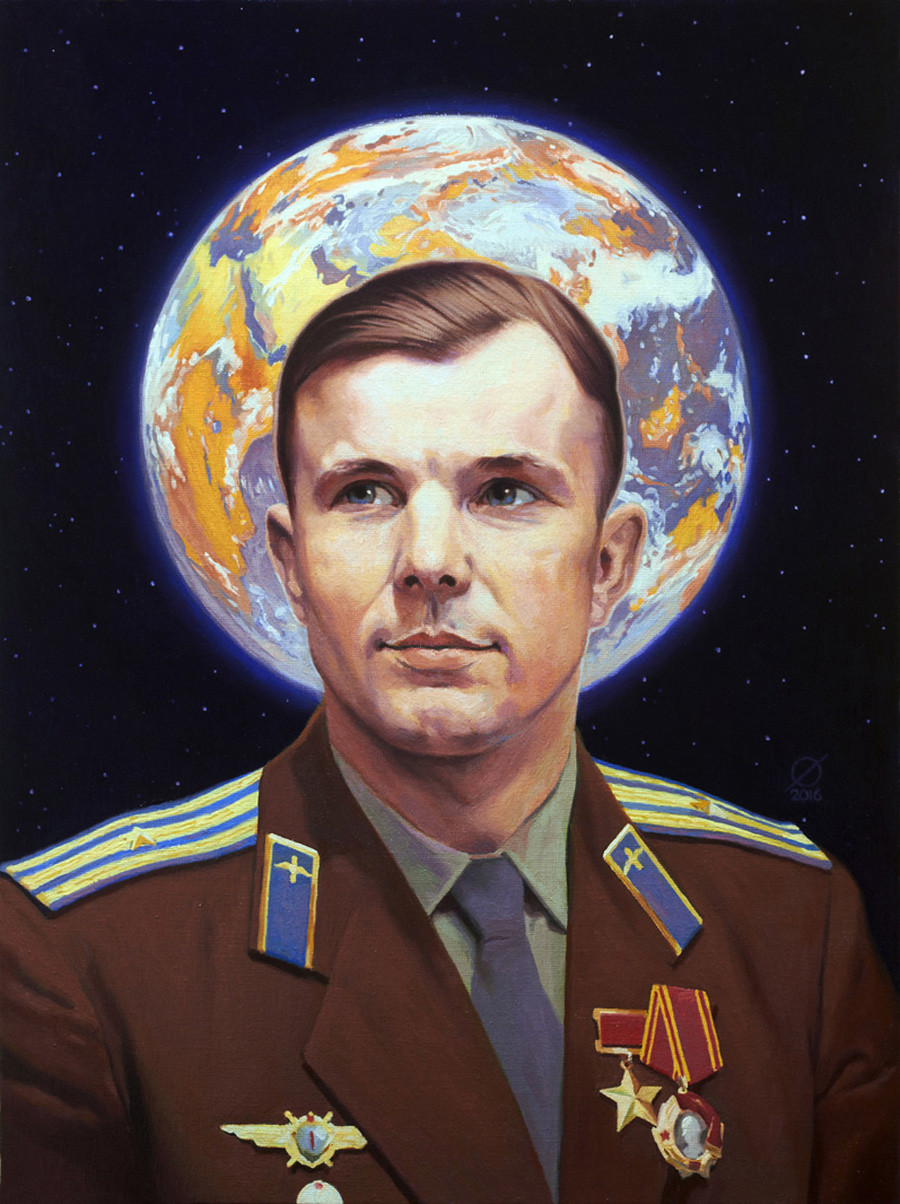
Members of the art group Doping-Pong create paintings and digital graphics in a retro-futuristic style. Their works combine modernity with Soviet aesthetics: pioneers, athletes and, of course, space.
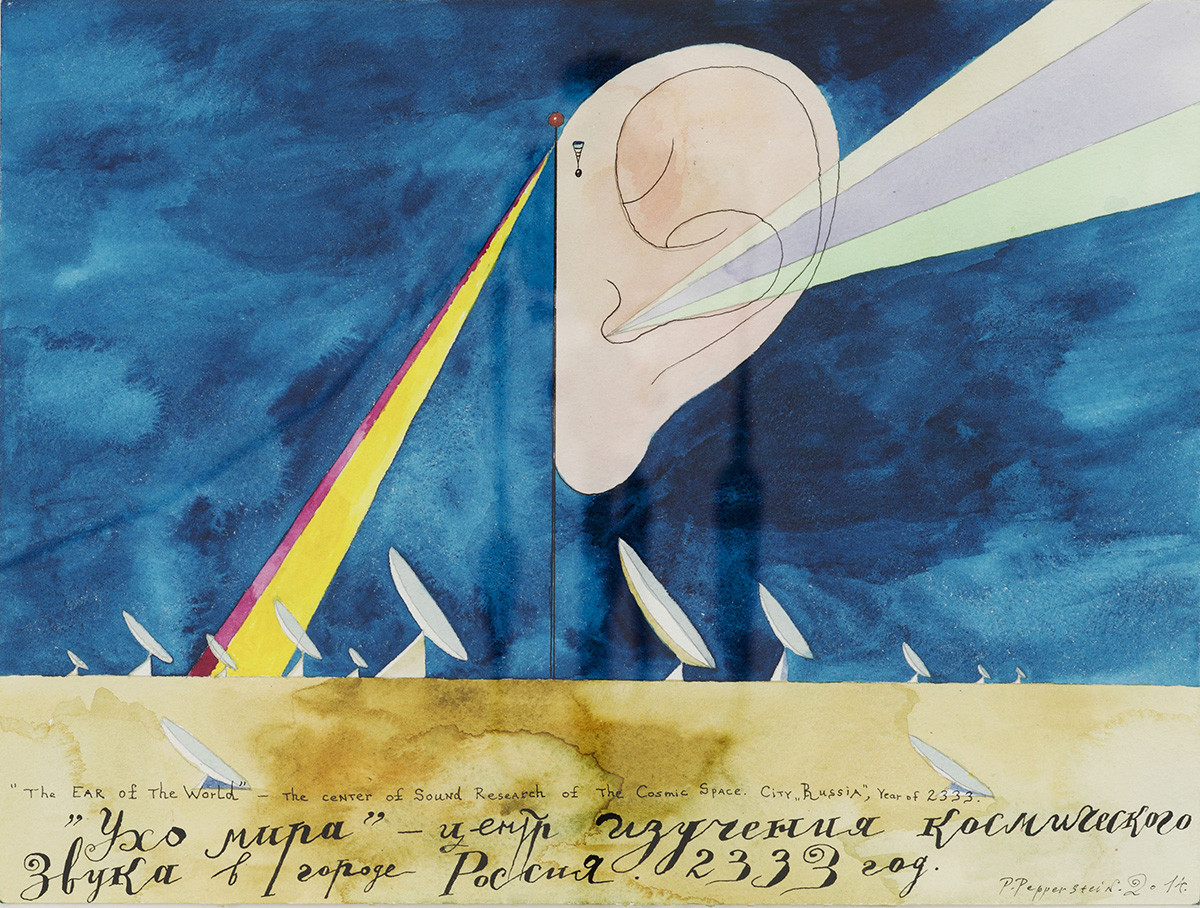
One of the most important figures in Russian modern art, Pavel Pepperstein imagined the year 2333 and what a center for the study of cosmic sound would look like.
Most of the above works are on display as part of the “Space As Art” exhibition at the ROSIZO Exhibition Center in Moscow till Sept. 26, 2021.
If using any of Russia Beyond's content, partly or in full, always provide an active hyperlink to the original material.
Subscribe
to our newsletter!
Get the week's best stories straight to your inbox